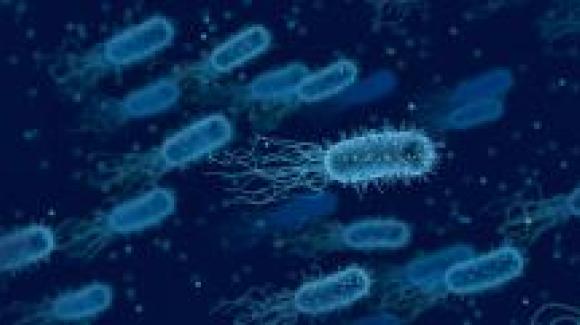Back to top
Actualités
Chaire de professeur junior en physique statistique expérimentale des systèmes vivants (F/M)
Publié le
6 juillet 2022
, modifié le
11 mai 2024
Located in theheart of Paris, PSL inspires dialogamongandbetweenallareas of knowledge, innovation, andcreativity in Sciences, Humanitiesand Social Sciences, Engineering andthe Arts. Selectiveandcommitted to equalopportunity, it drawsdirectlyfromcurrentresearch to train researchers, entrepreneurs, artistsand managers who are aware of their social responsibility, bothindividualand collective. With 2,900 researchers, 17,000 students, 140 laboratoriesand 10 incubators, fablabsand co-workingspaces, PSL is a human-scaleuniversity. It ranksamongtheworld’s top 50 universitiesaccording to theTHE (TimesHigherEducation) and QS (QuacquarelliSymonds) rankings.
HOSTING STRUCTURE
GeneralContext
PSL Assistant Professor in experimentalstatisticalphysics of living systems, Qbio center for Quantitative Biology, Ecole normale supérieure – PSL (ENS-PSL), PSLUniversity, Paris, France.
PSLUniversityseeks candidates for a tenure-track Assistant Professor in experimentalstatisticalphysics of living systems, for its Center for Quantitative Biology (QBio, https://qbio.ens.psl.eu/). The position is open to allresearcherswishing to open theirindependentexperimental lab in quantitative life sciences and physics of living systems. The position includes an internationallycompetitivesalaryandstart-up as well as independentlaboratoryspace.
Theproposed position is a joint initiative betweenthe ENS-PSL Center for Quantitative Biology (QBio) andtheLaboratory of Physics of École Normale Supérieure-PSL (LPENS, https://www.lpens.ens.psl.eu/?lang=en) in Paris. TheQBio Center for Quantitative Biology is one of PSLuniversity'sflagshipprojects. Launched in 2019, andsupported by a major sponsorshipfundraiser, thistransdisciplinary center bringstogetherresearchers in biology, physics, chemistry, cognitive sciences, around a commonproject: understandingandmodeling living systems. École Normale Supérieure-PSL houses a big andthematically diverse physics departement, with a lively international undergraduate and graduate teaching program (https://www.phys.ens.fr/spip.php?rubrique259). Withinthedepartement, the ‘biophysics’ axis (https://www.lpens.ens.psl.eu/research/biophys/?lang=en) groupstogethertheoreticiansandexperimentalists, enablingrichscientific interactions.
Priority is given to therecruitment of a colleagueperformingexperimentalresearch on themesincluding but notlimited to evolution, ecology, neuroscience, behaviour, signalling, development (compatible with a BSL-1 lab).
TEACHING MISSION
TeachingProject
Thehiredresearcherwillteachinterdisciplinary courses organized by Qbioaimed at thePSLundergraduateandgraduate population, as well as courses in the Master program of the International Center of FundamentalPhysics (ICFP – https://www.phys.ens.fr/spip.php?rubrique284&lang=en). BothICFPandQBiooffer high-levelexperimental courses, whichgivestudentstheopportunity to discover living systems. In particular, the Quantitative Biology Fablab (QLab) is an interdisciplinaryteaching initiative with a range of measurementtoolsandexperimentalfacilitiesthatallowsresearchersandstudents to discoverandlearn about the challenges of living systems, promotinginterdisciplinaryintegrationand innovation. WithinICFP, the course ‘AdvancedMethods in BiologicalPhysicsand Soft Matter’offersphysicsstudentsthe chance to constructtheirownexperimentalsetups. In both cases, the courses are centredaround a research question. Thehiredprofessorwill propose theirownthemesandprojects. Theywillalso be expected to participate in thecreation of new courses for thecommunity, strengtheningthe unique educationalexperienceoffered by ICFPandQbio.
cpj@psl.eu
RESEARCH MISSION
ResearchProject
Thespectacularsuccesses of molecularbiology have revolutionizedthescientificlandscape, creatingthepossibility of experimentallymanipulatingandinterrogatingthecomplex aspects of living systems. This transformation hasraisedtheneed for quantitative approaches to predictanddecipherthefundamentalmechanismsthatemergefromthestrongcouplingsand multiple scalesinvolved. This is thepurpose of our quantitative biologyprogram, whichhaschosen to rely on strong axes of thisresearch at ENS-PSL: quantitative immunology, neurosciences, developmentalbiology, big data in biology.
To addressthis major scientific challenge, andincreasethethematicandmethodologicaldiversity at PSL, we are looking to hire an independentexperimentalgroup in thearea of experimentalphysics of living systems. The candidate is expected to build an experimentallaboratory in an unshared new spaceandpromotemultidisciplinaryresearchactivities. Allareas of thephysics of living systemsthatcan be studiedwithoutaccess to mammalian animal facilitieswill be considered, howeverpreferencewill be given to quantitative areasnotcurrentlystudiedexperimentally in theENSphysicsdepartment, including but notlimited to evolution, ecology, neuroscience, behaviour, signalling, development. A strongwill to build interactions withother, especiallytheoreticalmembers of thephysicsdepartmentandtheQbiocommunity is welcome, but pre-existing contacts are notexpected at thetime of application. The position comeswith a dedicatedlaboratoryspace for the new hire to build theirresearchteam, as well as a comfortableseedfundingstart-up. The new hirewill have full access to the state-of-the-art technologyplatformsavailable in all of theQbiomemberdepartments. The goal of this position is to develop new scientificresearch directions usingcutting-edge quantitative experiments, exposingstudents at one of France’seliteundergraduate institutions to novelthemes.
cpj@psl.eu
HIRING PROCESS
Selection procedure, interviews :
The evaluation will be carried out by a commission composed of internal and external experts. The composition of the committee will be made public before its work.
Candidates shortlisted by the committee (on the basis of the applications) will be invited to give:
- A public seminar, open to all members of the QBio community, during which they will present their research and projects. They will also meet with various members of the community to discuss their research and teaching projects.
- An interview with the selection committee, during which the candidate will present their CV and previous research and teaching activities, their research and teaching projects for the open position, followed by a discussion with the committee.
Evaluation criteria:
- Excellence of the candidate, motivation, ability to supervise students
- Quality and originality of the research and teaching projects
- Integration of the project within the laboratory
- Capacity to establish collaborative networks.
- Adequacy of the means to the proposed project and capacity to raise additional funding.
APPLICATION PROCESS
HOW TO APPLY:
Candidates must prepare the following documents:
- passport
- PhD diploma
Application file including teaching statement and research statement, to be filled using the
CPJ application file - 3 letters of recommendation to be sent to cpj@psl.eu (include your name in the subject of the e-mail).
Once your documents are ready, they must be uploaded on the French-only Galaxie website: https://galaxie.enseignementsup-recherche.gouv.fr/antares/can/astree/index.jsp
A tutorial will shortly be available here, help with the upload process can be found at cpj@psl.eu.
For questions about the position, please contact Massimo.vergassola@ens.psl.eu
For questions specific to the recruitment procedure, please contact cpj@psl.eu
CONTACT
Nacéra BOUJNANE
Directrice des ressources humaines
cpj@psl.eu
07 50 15 93 16
Other information
Financial Support
The junior professor will benefit from a 350k€ start-up package (including a PhD student and money for equipment and operating costs).
Corresponding CNU section(s): 28 – 30
Keywords: Quantitative biology, biophysics, evolution, microbial populations, development.
Recherche principale : Biologie
Wage: 3444€
Position open to BOEs
Reference: CPJ-2022-01



Pour laisser un avis sur ce contenu, connectez-vous ou rejoignez-nous.
Se connecterS'inscrire